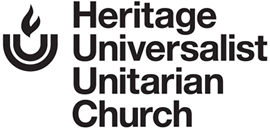by Mike Roberts, Church Historian
A few months ago, an archive article in this space mentioned the Broadwell School, which was an education center attached to our church for the purpose of providing both adult and child religious education. The school was funded from a generous bequest by a 19th century member of our church.
In 1958, the school offered a series of classes on the “Varieties of Liberal Religion.” Rev. Albert Q. Perry was the minister at the time, and introduced the series with the following statement:
Historically, the great religious movements of mankind have tended to soon settle down into large, well-organized, strictly defined institutions. However, small, individualistic, and sometimes heretical groups have occasionally evolved and broken away from these mainstreams of religious thought and activity. Because of a common emphasis upon the right of man to think, believe or act with considerable freedom, these have been loosely described as liberal movements.
Numerically, such liberal movements have rarely been significant, but their influence has been enormous. Particularly in America, the liberal churches and temples have usually provided the principle leadership in almost every field of human interest and betterment. The seven organized groups being studied in this series do not claim 2% of our population, but probably better than 50% of the notable people of the present and past are associated with liberal religion.
This series is designed to provide an opportunity to discover the differences in our major liberal religious groups, but also to enable us to understand what it is that we have in common, which has made our liberal faiths such a source of genius.
The series was held on successive Tuesday nights in January and February. Presentations were made by the representatives of each faith. A general discussion followed.
The presenters were: Mr. Don Stanley, a life-long Quaker and Pastoral Minister of the Cincinnati Society of Friends; Rev. Bjorn Johannson, minister of the Church of the New Jerusalem in Cincinnati; Rev. Clark Wells, minister of St. John’s Unitarian Church in Cincinnati; Rev. E.V. Ingraham, minister of the New Thought Temple of Cincinnati; Rabbi Murray Blackman, member of the Rockwell Avenue Temple in Cincinnati; Dr. Oscar Quimby, a member of the Cincinnati Humanist Society; Rev. Robert Rice, minister of the Universalist Church of Oak Park, Illinois; and Rev. Albert Q. Perry of the City Temple Universalist Church of Cincinnati.
